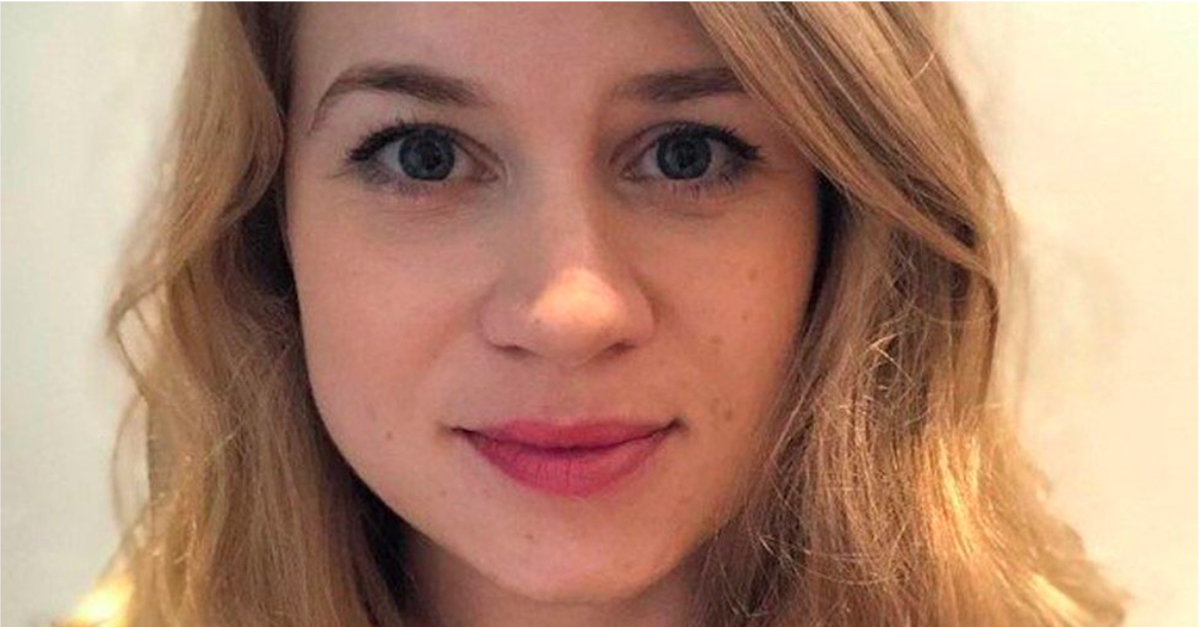
The death of 33-year-old marketing executive Sarah Everard and subsequent arrest of a Metropolitan police officer in London on suspicion of kidnapping and murder has led to international outrage, shining a light on issues of policing, sexual harassment, and gender disparity that culminated in officers violently arresting several women taking part in a peaceful vigil over the weekend.
Everard reportedly disappeared earlier this month while walking home to her south London apartment from a friend’s home, a trip that would normally take just under an hour. Everard reportedly left her friend’s apartment on March 3 at approximately 9 p.m. but was last spotted on footage from a resident’s doorbell camera at 9:28 p.m. Her boyfriend reported her missing on March 4.
On March 9, the London Metropolitan Police, also known as the Met or Scotland Yard, arrested Wayne Couzens, a 48-year-old constable who had been with the force for two years and served in the Parliamentary and Diplomatic Protection Command. He was not on duty at the time Everard went missing. A woman in her thirties was also taken into custody on suspicion of assisting an offender.
As reported by the BBC, police discovered human remains in the woods in Kent on March 10, confirming Everard’s identity on March 12 through dental records. Couzens was charged with kidnapping and murder later that day and appeared before a magistrate court on March 13. He will next appear before the Central Criminal Court on Tuesday.
The Independent Office for Police Conduct (IOPC), a police watchdog group, last week announced that it was opening an investigation after it was revealed that three days prior to Everard’s disappearance, Couzens was accused of indecent exposure at a London restaurant.
But the horrific nature and circumstances of Everard’s death were only exacerbated by law enforcement authorities’ reaction, which included telling the women of South London to remain indoors after dark for their own safety.
As New York Times columnist Amanda Taub wrote on Sunday, Everard was kidnapped and murdered despite doing “everything she was supposed to do” as a woman walking alone at night.
“She wore bright clothes and shoes she could run in. She checked in with her boyfriend to let him know when she was leaving. But that was not enough to save her life,” Taub wrote. “Ms. Everard’s disappearance called attention to the terms of a safety bargain so ubiquitous that many women might never have considered it in such terms: that in order to buy their own safety from male violence, they must make the ‘right’ choices. And that if a woman fails to do so, her fate is her own fault.”
Police then pressured a community group called Reclaim the Streets to cancel a vigil for Everard scheduled for Saturday evening, citing COVID-19 restrictions and promising hefty fines.
Despite Reclaim the Streets officially cancelling the gathering, several hundred turned up at Clapham Common for the vigil.
“The event ended in violence as the protesters and police clashed, and officers handcuffed and led women away from the event amid cries of ‘shame on you’ and ‘let them go,’” the Indian Express reported.
London Mayor Sadiq Khan on Sunday said he was ordering an investigation into how police treated attendees of the vigil.
“I can completely understand why women, girls, and allies wanted to hold a vigil to remember Sarah and all women who have been subjected to violence or lost their lives at the hands of men, and to reclaim the public spaces where women are made to feel so unsafe,” he said in a statement. “I will now be asking Her Majesty’s Inspectorate of Constabulary [HMIC] to conduct a full independent investigation of events yesterday evening and in previous days. I am also asking the IOPC to investigate the actions of police officers yesterday evening.”
[image via Lambeth Police]
Have a tip we should know? [email protected]